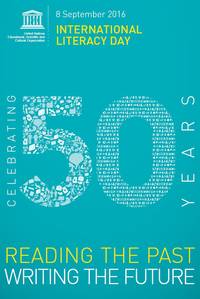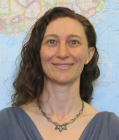In 2002 a group of organizations working in the area of free access to information met in Sofia, Bulgaria at the Freedom of Information litigation conference. As a result of this meeting the International Freedom of Information Advocates Network was formed to promote the right of access to information for all people and underline the importance of transparency and openness on the part of governments. The 28th of September is set aside each year to mark the progress made in promoting this “right to know”.
What constitutes transparency and openness in government? This is an issue that affects all countries. It includes the ability freely access and understand the publications and records of activities of government entities. The U.S. Government Information Transparency Act of 2009 provides some additional background on the topic. It states:
“Openness and accountability are deeply rooted in the U.S. Government, so much so that it is written into the Constitution that the Congress keep a record of its activities and make it available to the general public. To this end, the Congress has, over the years, enacted a number of laws requiring a variety of federal information to be made available to the public. Since its passage in 1966, the Freedom of Information Act (FOIA) has been a cornerstone of these efforts. Additionally, there are numerous federal laws requiring the public disclosure of an array of federal information including, but not limited to, the Ethics in Government Act, the Federal Funding Accountability and Transparency Act, and the Honest Leadership and Open Government Act.
While all of these open government laws improve transparency and accountability, the information and data they produce, whether it be because of format, venue, or sheer volume, is not always useful. As it currently stands, a variety of federal business and financial information is available to the public in a number of different formats and places. Although the Internet has greatly improved the accessibility of this information, accessibility alone does not promote accountability. In order to be an efficient and effective resource for both the general public and the federal government itself, federal business and financial information must be made available in a standard and useful way so that data is more easily manipulated, searched, and shared. The Government Information Transparency Act directs OMB to adopt single data standards for the collection, analysis, and dissemination of federal business and financial information. H.R. 2392 is intended to improve the transparency, consistency, and usability of federal business and financial information.”
The United States government has a long standing Freedom of Information Act that provides a process for retrieving information that is not readily available for a variety of reasons. Passed in 1966, the Act was one of the first to address the challenges of government transparency. The FOIA website provides excellent information on how to make a request, statistics on the number of requests received and processed and more. Mendel provides an excellent overview of the Act and how it is currently measuring up in comparison to other nations’ laws. The challenges to federal employees in accommodating the law is discussed briefly by Rodgers and helps us understand some of the difficulties endemic to completing FOIA requests. The University Library subscribes to the Digital National Security Archive, a database that provides access to many collections of previously classified documents.
In a related area today is also the first celebration of the International Day for the Universal Access to Information which underlines the importance of easy access to information for sustainable development. You can read more about this celebration at the UNESCO site as well as the site for the International Federation of Library Associations and Institutions.
For more information on this topic you might read –
Books:
Martin, G. Bray, R.S. & Kumar, M. (Eds.) (2015) Secrecy, law, and society. New York: Routledge.
Scholarly Articles:
Doshi, P., & Jefferson, T. (2016). Open data 5 years on: A case series of 12 freedom of information requests for regulatory data to the european medicines agency. Trials, 17(1) doi:10.1186/s13063-016-1194-7
Gunnlaugsdottir, J. (2016). Reasons for the poor provision of information by the government: Public opinion. Records Management Journal, 26(2), 185-205. doi:10.1108/RMJ-03-2015-0013
Liu, A. C. (2016). Two faces of transparency: The regulations of People’s republic of china on open government information. International Journal of Public Administration, 39(6), 492-503. doi:10.1080/01900692.2015.1018426
Mendel, T. (2016). The Fiftieth Anniversary of the Freedom of Information Act: How it Measures up Against International Standards and Other Laws. Communication Law & Policy, 21(4), 465-491. doi:10.1080/10811680.2016.1216685
Mohapatra, S. (2016). Right to information act, 2005 and privacy in public mental health sector in india. Asian Journal of Psychiatry, 19, 23. doi:10.1016/j.ajp.2015.11.011
Rodgers, M. A. (2016). Freedom of Information Act Requests Six Keys to Handling Them. Defense AT&L, 45(1), 50-52.
Vadlamannati, K. C., & Cooray, A. (2016). Transparency pays? evaluating the effects of the freedom of information laws on perceived government corruption. Journal of Development Studies, , 1-22. doi:10.1080/00220388.2016.1178385
Websites:
Digital National Security Archive
Federal Funding Accountability and Transparency Act
Honest Leadership and Open Government Act




